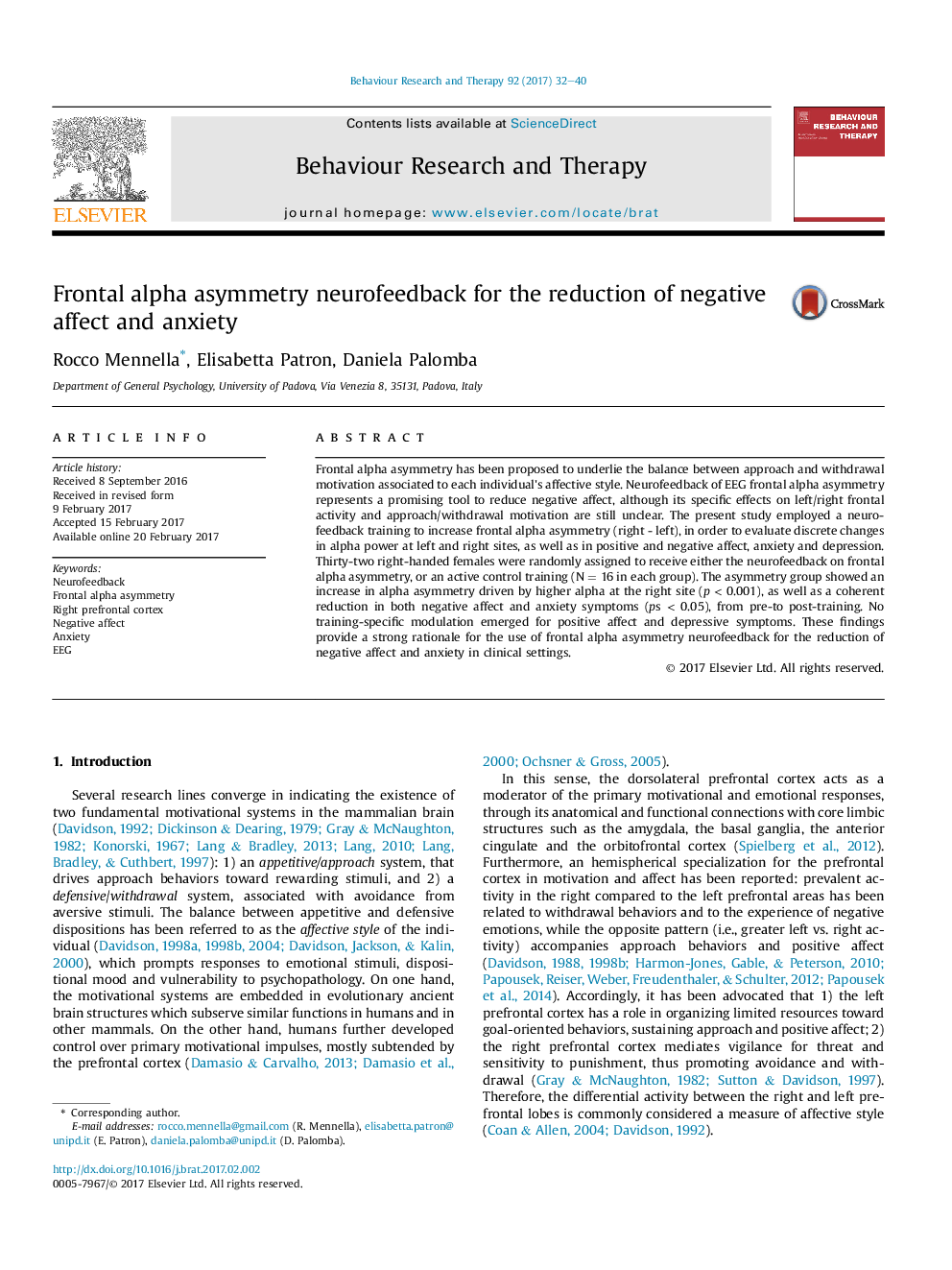| Article ID | Journal | Published Year | Pages | File Type |
|---|---|---|---|---|
| 5038288 | Behaviour Research and Therapy | 2017 | 9 Pages |
â¢Neurofeedback was found to be effective in increasing the frontal alpha asymmetry index (F4-F3).â¢An increase in alpha at right frontal site subtended the modulation of the asymmetry index.â¢The reduction of right frontal activity was mirrored by a decrease in negative affect and anxiety.â¢No effects emerged at the left site, as well as on positive affect and depression.â¢Frontal alpha asymmetry neurofeedback is a promising clinical tool for negative affect/anxiety.
Frontal alpha asymmetry has been proposed to underlie the balance between approach and withdrawal motivation associated to each individual's affective style. Neurofeedback of EEG frontal alpha asymmetry represents a promising tool to reduce negative affect, although its specific effects on left/right frontal activity and approach/withdrawal motivation are still unclear. The present study employed a neurofeedback training to increase frontal alpha asymmetry (right - left), in order to evaluate discrete changes in alpha power at left and right sites, as well as in positive and negative affect, anxiety and depression. Thirty-two right-handed females were randomly assigned to receive either the neurofeedback on frontal alpha asymmetry, or an active control training (N = 16 in each group). The asymmetry group showed an increase in alpha asymmetry driven by higher alpha at the right site (p < 0.001), as well as a coherent reduction in both negative affect and anxiety symptoms (ps < 0.05), from pre-to post-training. No training-specific modulation emerged for positive affect and depressive symptoms. These findings provide a strong rationale for the use of frontal alpha asymmetry neurofeedback for the reduction of negative affect and anxiety in clinical settings.
